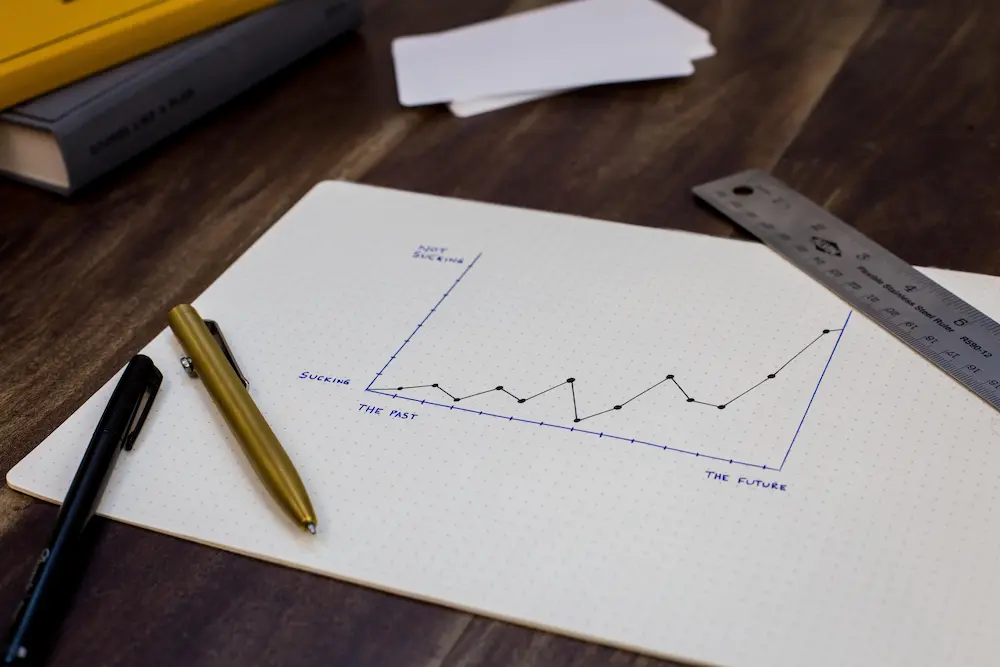Clickvoyant is an AI-powered tool that automates the creation of analytics reporting.
The tool uses natural language generation (NLG) to dramatically reduce the time it takes to extract insights from analytics and create presentations based on those insights.
We spoke with Mia Umanos, Vice President at Clickvoyant, to learn more about this marketing AI solution.
In a single sentence or statement, describe your company.
Clickvoyant is woman-owned AI analytics software that automates presentations from raw marketing data and offers support services supplied by SHE-roes of the marketing analytics industry.
How does your company use artificial intelligence in its products?
We use statistics and NLG to mimic the human process used to generate monthly performance presentations. Our software is frictionless and reduces 50 hours of work into 10 minutes, allowing expensive human resources to focus on value-add activities that require judgement and leadership.
What are the primary marketing use cases for your AI-powered solutions?
We support marketing data analysis to find insights critical to improve performance. Our customer pain points include high analytics talent churn, lack of senior resources, and the high cost of establishing a practice.
In many cases, we find that some marketers are simply going without an analytics team and trying a DIY approach. The problem with that is that without the statistics applied, data readouts are often only as good as a random guess.
What makes your AI-powered solution smarter than traditional approaches and products?
Most data software suppliers in our industry offer two things: 1) data aggregation (get all your data into one place) and 2) dashboard capabilities.
These two types of software assume that an analyst is on the other end. Fact is, there is a $200B gap in data talent right now. There isn't anyone on the other end to take that job. Clickvoyant is better because it is an analyst. We pull unsampled data, run the analysis, and deliver a PowerPoint presentation of what is statistically significant and material to the business.
In this way, marketers can focus on the more creative part of their jobs. They can feel confident that sound math is behind the work. Each insight is paired with an estimated monetary value so they can prioritize the next data-driven actions.
Are there any minimum requirements for marketers to get value out of your AI-powered technology? (e.g. data, list size, etc.)
A minimum of 800 sessions per month is recommended for their main web or application property.
Who are your ideal customers in terms of company size and industries?
Creative and digital marketing agencies of all sizes. Today, we are primarily focused on agencies smaller than 100 employees.
What do you see as the limitations of AI as it exists today?
AI can not for now replace leadership, judgement and creativity, but any AI that helps give humans more time for that will elevate us all to higher ground.
What do you see as the future potential of AI in marketing?
I see AI as introducing efficiency to all repetitive marketing tasks, particularly in data and SEO. Not everyone in marketing has the resources to know the ins and outs of those disciplines, but many tasks are easily programmable. Digital marketing is very much a conversation, but most marketers are incapable of listening, whether due to lack of data processing resources or insight latency. If we apply the best minds to automate and predict on the repetitive tasks, we can lean more toward creativity and brand relationships.
Any other thoughts on AI in marketing, or advice for marketers who are just getting started with AI?
Don't wait to get started. This is a new frontier where we figure our how human and computer decisions work together. The sooner you try, the sooner you'll learn. Do not expect to replace your people but rather, empower them with AI. It's unlikely that AI will be 100% capable of replacing a human anyway. Judge it based on KPIs like time saved, value adds, etc.
Paul Roetzer
Paul Roetzer is founder and CEO of Marketing AI Institute. He is the author of Marketing Artificial Intelligence (Matt Holt Books, 2022) The Marketing Performance Blueprint (Wiley, 2014) and The Marketing Agency Blueprint (Wiley, 2012); and creator of the Marketing AI Conference (MAICON).



